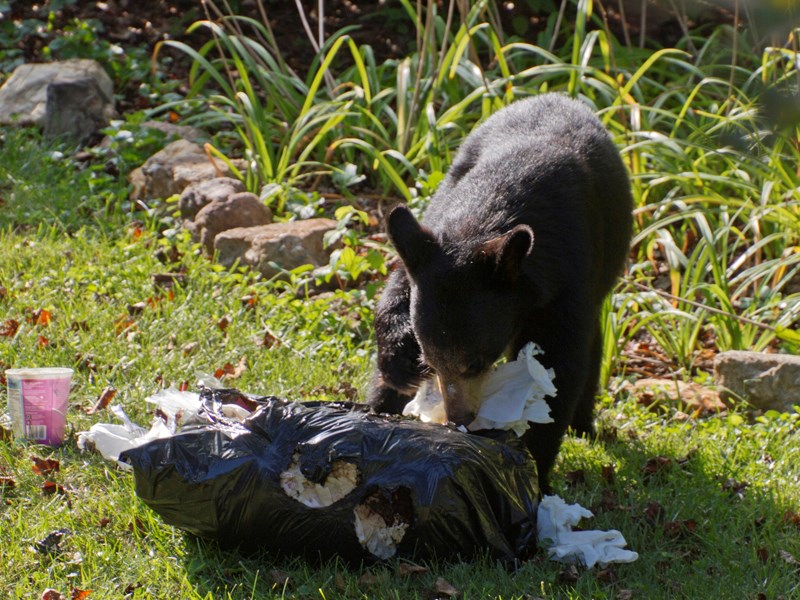Summer is barely upon us, but reports of bear activity are already rolling in from concerned residents. Cute and cuddly from a distance, bears are wild animals that can behave unpredictably, endanger people and pets and cause damage to property.
Keeping bears, humans and pets safe is possible when a few precautions are taken.
Start with odour management. Bears have a strong sense of smell. There is no hiding a tasty tidbit from these furry foragers, so be mindful with attractants such as compost, yard waste (especially grass clippings), unwashed recyclables and mixed waste.
WildSafeBC recommends storing these attractants in well-built enclosures with tight lids until the morning of collection, or prior to taking them to an appropriate depot. Do not wait too long to manage these attractants; if you can smell it, so can the bears.
Backyard composters are less likely to attract wildlife when they are properly managed. Add leaves, wood shavings or shredded newspaper in equal volumes to kitchen scraps to make the compost work as it should.
Meat, fish and dairy products (along with plate scrapings and yard waste under 20 pounds) can be dropped off at Town Centre Recycling Depot's free community-compost collection bin if you are wary of adding them into your home compost.
Households that do not compost should be aware that their bins likely have about 40 per cent of organic material mixed in and can be a calling card to all manner of hungry animals.
Reducing the likelihood of an unwanted encounter is better than taking corrective measures after the fact. Once bears identify something as a food source, they are more apt to return, even when there is no odour or attractant.
A few other tips include rinsing out garbage, recycling and compost bins regularly, especially if they are made from plastic, which absorbs odours over time. Avoid the seemingly innocent practice of tossing kitchen scraps in the bush, as it makes bears associate humans with food and habituates them.
Following these tips can help keep wildlife wild and people safe.
Let’s Talk Trash is Powell River Regional District’s waste-management education program.



